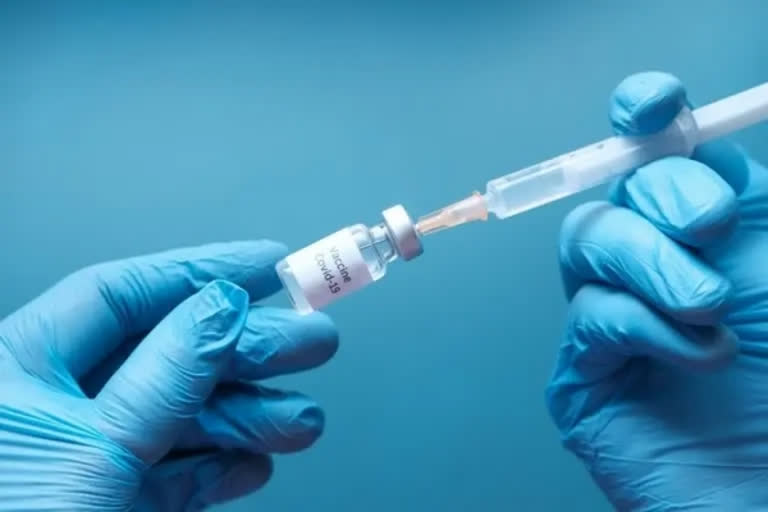New Delhi: A recent study by the peer-reviewed medical journal Lancet has indicated high transmissibility of Delta plus variant even among vaccinated people, triggering a debate over the need for a third dose of Covid-19 vaccination.
While some healthcare experts have called for a third dose of vaccinations citing similar research findings and the possibility of immunocompromise among frontline health workers, some have ruled out the need, underscoring a dearth of data backing the claim.
"I strongly support the administration of the third dose of vaccine especially to front line workers who were vaccinated in the first slot and have a higher risk of exposure," said Dr Tamorish Kole, President, Indian Society of Emergency Medicine.
The Lancet study on community transmission and viral load kinetics of the SARS-CoV-2 Delta (B.1.617.2) variant in vaccinated and unvaccinated individuals indicates that fully vaccinated individuals with breakthrough infection have peak viral load similar to unvaccinated cases and can efficiently transmit infection in household settings, even to fully vaccinated contacts.
"The study (The Lancet) threw light on the interplay of vaccination and infection. Even vaccinated people can carry the virus and pass it on to others," said Dr Kole.
Also Read: Commonly Used Antidepressant Not Effective In Treating Dementia: Lancet
The Indian SARS-CoV-2 Genomic Consortia has said that Delta and its variant Delta plus continue to be the main cause of concern in India. It is, however, said that the presence of B.1.617.2 is minimal at present. Although there is a continuous debate over the longevity of antibodies in a fully vaccinated person, it is found that even fully vaccinated individuals are susceptible to reinfection.
"Third dose is basically given, following the fact that an individual loose his or her immunity after six to seven months of vaccination. There are certain individuals like front-line health workers who are immunocompromised," said Dr Kole. A second dose of a vaccine basically boosts the first dose.
"Technically, the second dose is the booster dose. And doses given thereafter is called as third dose or fourth dose," said Dr Kole.
"Except Johnson & Johnson, which is a single-dose vaccine, all other vaccines have given the second dose which is terminologically is the booster dose," he added. In India, the third dose is not approved yet.
A subject advisory group of experts (SAGE) of the World Health Organisation (WHO) has suggested that moderately and severely immunocompromised people should be offered an additional dose since they are less likely to respond adequately to vaccination following a standard primary vaccine schedule.
Countries like France, Germany, and Israel have allowed the third dose. Recently, US and UK have also approved the third dose. However, debate continues in India whether a third dose of Covid19 vaccines is required or not.
"At present, no study in India has suggested that our population needs the third dose. Let study come out first on whether we really need an third additional dose," said Dr Guridhar Gyani, Director General, Association of Healthcare Providers in India.
Also Read: Pfizer Vaccine Highly Effective Against COVID-19 Hospitalizations For Six Months: Lancet Study
Noted virologist and microbiologist Dr Gagandeep Kang has suggested that there is no need for a booster at this time.
"In India, we don't have any data showing that anyone who has received two doses of vaccine needs booster vaccine at this time," Dr. Kang was recently quoted by media.



